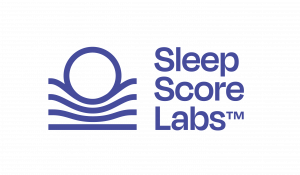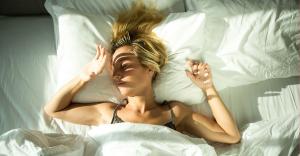As the Clocks Change: SleepScore Labs Analysis Reveals Importance of Light Exposure During Daylight Saving Time
CARLSBAD, CALIFORNIA, UNITED STATES, November 3, 2023 /EINPresswire.com/ -- SleepScore Labs, a leader in sleep science and technology, today announced the outcome of their latest analysis, titled "The Self-Reported Practice of Light Exposure Recommendations in the Morning, Daytime, Evening, and Nighttime." The analysis, presented at the annual SLEEP meeting in 2023, aims to shed light on the self-reported habits of light exposure among adults and provide insights into the adherence to expert recommendations. These findings offer valuable information for individuals striving for optimal sleep and circadian health.
The analysis addresses the lack of evidence-based recommendations for daylight, evening, and nighttime light exposure for healthy adults. SleepScore Labs examined the self-reported practices of 168 participants aged 25-80, using an online survey to understand their light exposure habits based on recently published expert consensus recommendations.
Results from the survey showed that within the first hour after waking up, the majority of respondents (53%) reported never receiving exposure to at least 15 minutes of sunlight or simulated bright light. Additionally, only 16% reported exposure to bright light every day of the week. This lack of exposure to bright light in the morning can have significant implications for circadian health, and it's especially relevant as the United States approaches the upcoming daylight saving time change on November 5th at 2 a.m. local time.
Throughout the daytime, 54% of respondents reported receiving consistent natural indoor light or sunlight every day of the week. However, 8% reported never receiving any natural light during the day. This data suggests that a significant portion of the population may not be benefiting from the positive effects of daylight exposure on sleep and overall well-being, which is especially important during the daylight saving time transition.
During the evening, 47% of the participants reported never dimming lights and avoiding bright light starting at least 3 hours before bedtime. Exposure to bright light before bedtime can trick the brain into thinking it's still daytime, thereby delaying sleep onset and potentially negatively impacting sleep quality, an issue that becomes more pronounced with the onset of standard time during daylight saving transitions.
The research also found that nearly 80% of respondents reported keeping their bedroom as dark as possible, no brighter than natural moonlight, every day of the week. This adherence to sleep-friendly environments is crucial for quality sleep.
In conclusion, the self-reported practice of recently published light recommendations was poor for both morning and evening light exposure. These findings underscore the need for sleep and circadian health campaigns to raise awareness about the importance of bright light in the morning upon awakening and the significance of dimmed light in the late evening before bedtime.
"There is a clear gap between the expert recommendations and everyday practice when it comes to light exposure," said Dr. Elie Gottlieb, Lead Applied Sleep Scientist at SleepScore Labs. "Our findings highlight the need for education and awareness about the impact of light on sleep and circadian health. By understanding the science behind light exposure and integrating it into daily routines, individuals can optimize their sleep and overall health and well-being.”
Daylight saving time changes can affect sleep and circadian rhythms, making it crucial to prioritize exposure to natural sunlight in the morning and afternoon. SleepScore Labs' recently developed Circadian Scheduler feature provides personalized recommendations for bedtimes, wake-up times, light exposure timing, and more, based on self-reported chronotype, aiding individuals in adapting to the new time schedule effectively.
In addition, SleepScore Labs has developed an AI-powered visual meditation for sleep called DreamScape. This innovative technology assists individuals with their wind-down routine and promotes relaxation.
By incorporating these tools and practices into daily life, individuals can improve their sleep quality and overall well-being, ensuring a smoother transition during daylight saving time changes. SleepScore Labs remains committed to developing cutting-edge technologies that empower individuals to achieve their best sleep.
For more information about SleepScore Labs and their sleep solutions, please visit www.sleepscore.com.
###
About SleepScore Labs:
SleepScore Labs is a sleep technology company that provides science-backed solutions to improve sleep health, utilizing data, technology, and science. With a team of leading sleep experts, the company pioneers in the development of innovative sleep solutions based on extensive research. By utilizing a comprehensive approach to sleep analysis, SleepScore Labs aims to enhance the quality of sleep for individuals worldwide. Visit www.sleepscore.com for more information.

The analysis addresses the lack of evidence-based recommendations for daylight, evening, and nighttime light exposure for healthy adults. SleepScore Labs examined the self-reported practices of 168 participants aged 25-80, using an online survey to understand their light exposure habits based on recently published expert consensus recommendations.
Results from the survey showed that within the first hour after waking up, the majority of respondents (53%) reported never receiving exposure to at least 15 minutes of sunlight or simulated bright light. Additionally, only 16% reported exposure to bright light every day of the week. This lack of exposure to bright light in the morning can have significant implications for circadian health, and it's especially relevant as the United States approaches the upcoming daylight saving time change on November 5th at 2 a.m. local time.
Throughout the daytime, 54% of respondents reported receiving consistent natural indoor light or sunlight every day of the week. However, 8% reported never receiving any natural light during the day. This data suggests that a significant portion of the population may not be benefiting from the positive effects of daylight exposure on sleep and overall well-being, which is especially important during the daylight saving time transition.
During the evening, 47% of the participants reported never dimming lights and avoiding bright light starting at least 3 hours before bedtime. Exposure to bright light before bedtime can trick the brain into thinking it's still daytime, thereby delaying sleep onset and potentially negatively impacting sleep quality, an issue that becomes more pronounced with the onset of standard time during daylight saving transitions.
The research also found that nearly 80% of respondents reported keeping their bedroom as dark as possible, no brighter than natural moonlight, every day of the week. This adherence to sleep-friendly environments is crucial for quality sleep.
In conclusion, the self-reported practice of recently published light recommendations was poor for both morning and evening light exposure. These findings underscore the need for sleep and circadian health campaigns to raise awareness about the importance of bright light in the morning upon awakening and the significance of dimmed light in the late evening before bedtime.
"There is a clear gap between the expert recommendations and everyday practice when it comes to light exposure," said Dr. Elie Gottlieb, Lead Applied Sleep Scientist at SleepScore Labs. "Our findings highlight the need for education and awareness about the impact of light on sleep and circadian health. By understanding the science behind light exposure and integrating it into daily routines, individuals can optimize their sleep and overall health and well-being.”
Daylight saving time changes can affect sleep and circadian rhythms, making it crucial to prioritize exposure to natural sunlight in the morning and afternoon. SleepScore Labs' recently developed Circadian Scheduler feature provides personalized recommendations for bedtimes, wake-up times, light exposure timing, and more, based on self-reported chronotype, aiding individuals in adapting to the new time schedule effectively.
In addition, SleepScore Labs has developed an AI-powered visual meditation for sleep called DreamScape. This innovative technology assists individuals with their wind-down routine and promotes relaxation.
By incorporating these tools and practices into daily life, individuals can improve their sleep quality and overall well-being, ensuring a smoother transition during daylight saving time changes. SleepScore Labs remains committed to developing cutting-edge technologies that empower individuals to achieve their best sleep.
For more information about SleepScore Labs and their sleep solutions, please visit www.sleepscore.com.
###
About SleepScore Labs:
SleepScore Labs is a sleep technology company that provides science-backed solutions to improve sleep health, utilizing data, technology, and science. With a team of leading sleep experts, the company pioneers in the development of innovative sleep solutions based on extensive research. By utilizing a comprehensive approach to sleep analysis, SleepScore Labs aims to enhance the quality of sleep for individuals worldwide. Visit www.sleepscore.com for more information.
Erica Quindo
SleepScore Labs
erica.quindo@sleepscorelabs.com
Visit us on social media:
Facebook
Twitter
LinkedIn
Instagram
YouTube
TikTok


